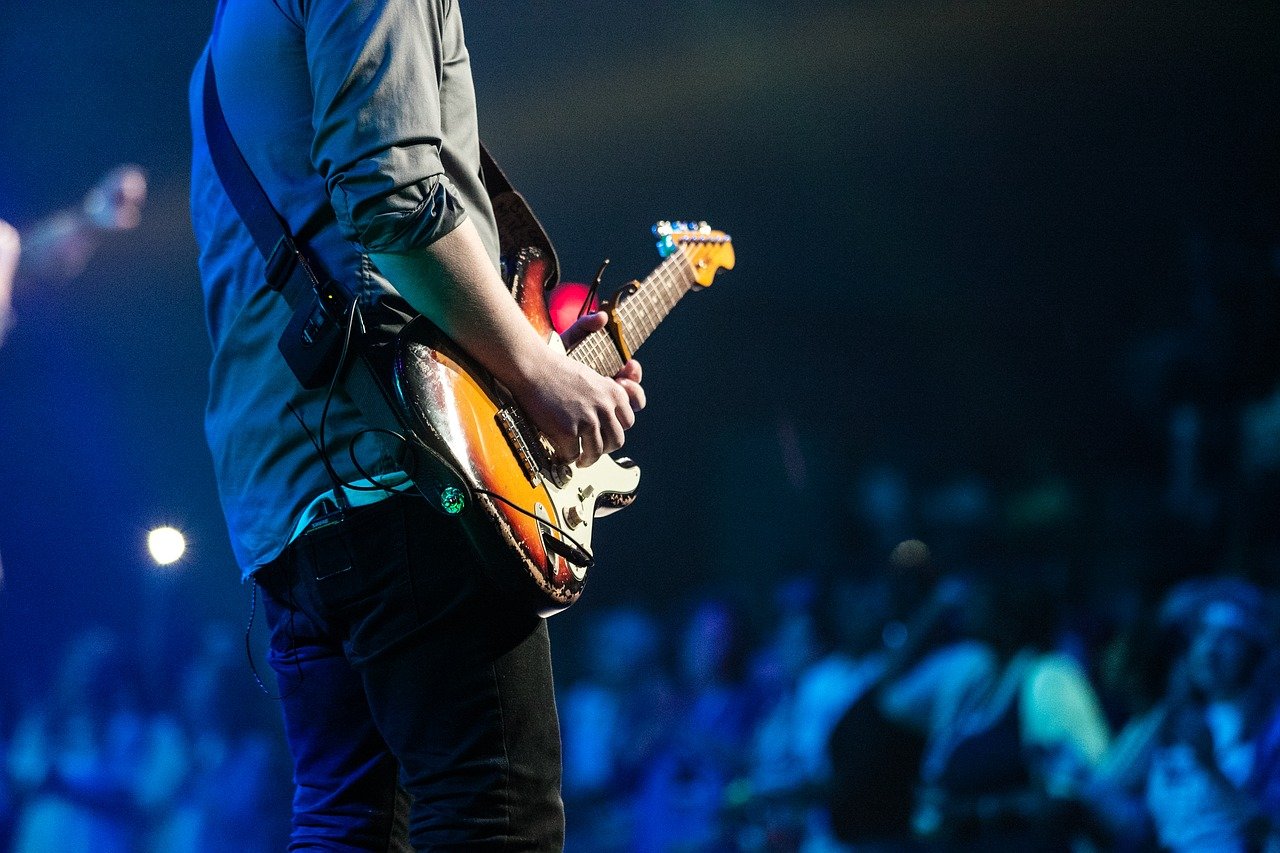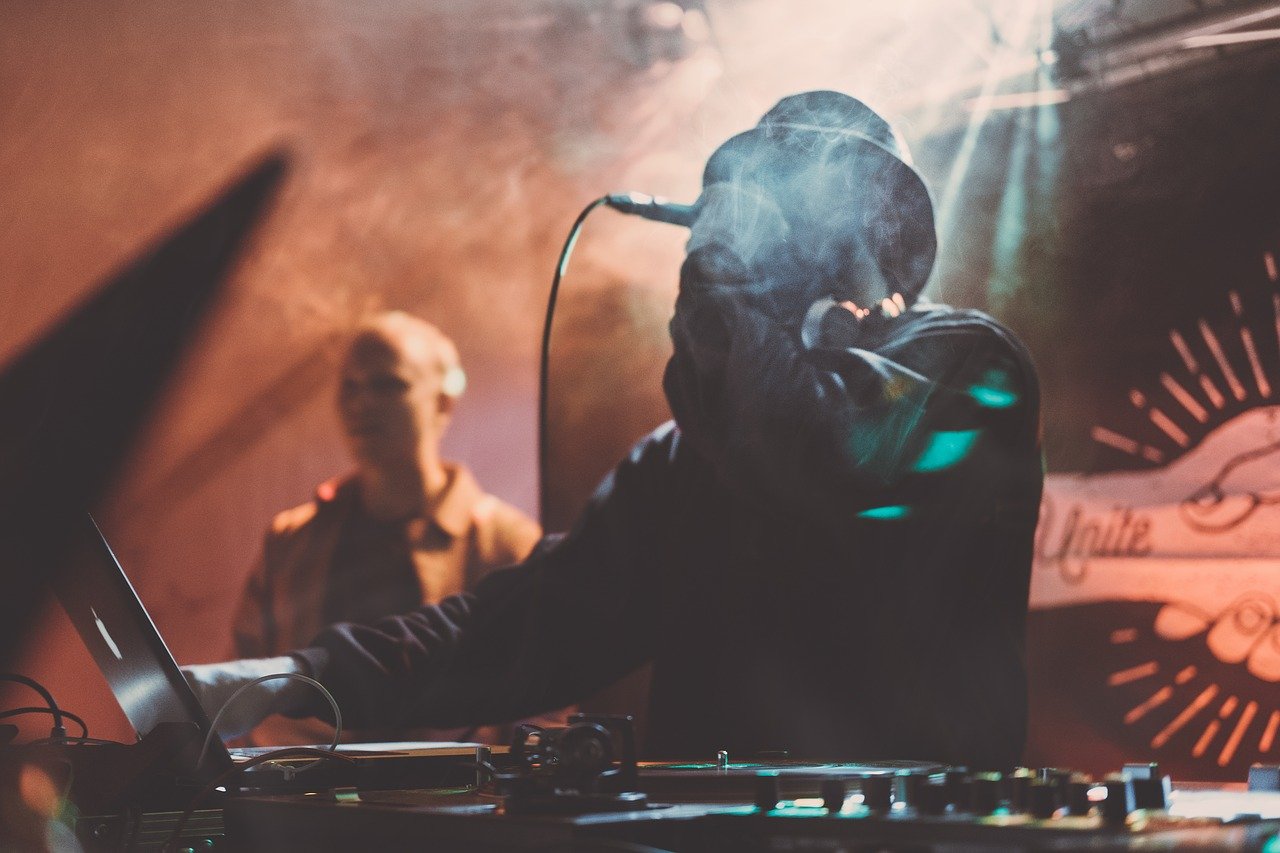
Why Do Musicians Wear Headphones?
Often you will see musicians wearing headphones, either in a studio setting or at a concert. The most obvious answer is that they are listening to music or a click track. But there’s a more subtle answer.
They listen to the room and hear how the sound in the room is being affected by their performance. For example, if they are singing very quietly, they can hear that the room’s volume is too loud. If you sing into a microphone and don’t hear your voice through speakers at all, then you have no idea what your voice sounds like over speakers. You may be singing with too much or too little volume. You may be singing in an odd way that doesn’t sound good through a PA system. With headphones, you can hear yourself over the whole room.
A lot of musicians wear headphones even when they are not using them for listening purposes. They find them more comfortable than earplugs when playing loud music for long periods (which is why drummers do not use earplugs).
They also protect against hearing damage from loud stage volume. With headphones, you can turn down the stage volume while keeping the room volume at a safe level.
So, Why Do Musicians Wear Headphones? Here are some compelling reasons.
Sound Bleed
If you’ve got a vocalist and an electric guitar in the same room, for example, the vocal mic will pick up some of the guitar signals. Sometimes this is good; it can give the vocal mic a nice ambient sound that fits in with the recording. But sometimes you don’t want that.
If you’re recording a singer and want the sound to be as clean and “dry” as possible, you want to get rid of any bleed from other instruments. This is done using headphones on the vocalist (and any other musicians nearby); this blocks off the bleed and helps keep each instrument sounding clear and uncluttered.
It’s not uncommon for a band to have all of its members wearing headphones before they even hit record. For one thing, if all of them are wearing headphones, you have one less thing to worry about during recording (you don’t have to worry about bleed). But more importantly, when everyone’s listening to themselves on headphones, it means that they’re paying attention to their performance. It’s easier to capture a band paying attention than one that’s just going through the motions.
They may also be used by musicians who are not playing at the time to listen to or practice with a mix of backing tracks or click tracks.
To provide Sound Isolation

If bleed can be a problem on a recording, sound isolation can be a nightmare.
The idea is to have each instrument in a band sound as pure and uncoloured as possible. By having each instrument “sit” separately on the stereo soundscape (known as “stereo separation“), you get a more pure sound. If you play different instruments in the same room and don’t isolate them, you’ll end up with all of them sounding like they’re jumbled together in the same space, which can be pretty hard to listen to.
Imagine hearing a piano and a drum kit in the same room. You’re going to have a hard time picking out which is which.
Isolation isn’t just about reducing bleed. If you’re recording an acoustic guitar, the guitar’s sound will be affected by its environment. The best way to record an acoustic guitar is to isolate it from its surroundings as much as possible, usually by putting it in a special acoustic soundbox called an iso booth. This reduces interference from outside sounds and reflections off nearby surfaces.
Sometimes they use in-ear monitors
Think about the job a pair of headphones has to do. They need to cover your ears, or as much of them as possible so that you can hear everything you need to hear on stage. At the same time, they need to be eliminating everything else for your ears, so you don’t have to listen to all the loud noises around you that make it impossible for you to hear yourself clearly and play at your best.
That’s why some musicians opt for in-ear monitors rather than headphones. Earphones are smaller and harder than regular headphones and fit snugly inside your ear without blocking out any ambient noise around you. This makes it easier for you to hear the music around you better (such as crowd noise) and enables you to listen to yourself better on stage.
To Protect their Hearing

A recent study by Jack Katz found that rock musicians have hearing damage at twice the rate of other professions at a rate of just under 50%.
This doesn’t mean that they can’t hear – it means their ears are more sensitive than average and loud noises easily damage them. Protecting your hearing is essential if you want to be able to enjoy music when you get older!
The most common problem with hearing damage is tinnitus or “ringing in the ears”. The part of your ear that turns vibrations into sounds has hair cells inside it that pick up vibrations. Loud noises easily damage these hair cells, so they lose their ability to carry vibrations down into your brain, which leads to impaired hearing.
Musicians are advised not to listen to music through headphones at high volume and take regular breaks from the stage to avoid hearing damage. If you play in a band, take a break from being on stage and let your ears have a rest.
To get the best possible sound out of a mix
While normal stereo speaker positioning is fine for listening to music in your living room or on your mp3 player, it’s not good enough for mixing and mastering, which is the final process in producing a record.
Mastering is the process of “polishing” a final mix so that it sounds perfect. When you add things like compression, EQ, limiting and other effects to make sure you have as much dynamic range as possible and make the track sound as clear as possible.
You want your mix to sound good on every speaker system that someone will listen to it on – not just at home but in public places like clubs too. You also want it to sound good when played through headphones – which means even more careful treatment of the overall sound.
To enable them to hear themselves on stage better
This is related to the idea above about using in-ear monitors rather than headphones on stage. As musicians have become more aware of the importance of good monitoring on stage, they’ve realised that they need more than just a pair of regular old headphones with foam pads that go over your ears. They need something specifically designed for stage use that fits comfortably inside their ears and provides better sound isolation than regular earphones. That means they can hear themselves better than ever before and practise more on stage without driving everyone else crazy!
Overdubbing and Mixing
These days it’s common for music producers to mix tracks using a computer rather than mixing them by hand.
This makes it possible for them to layer several tracks together, record parts separately, and bring them together into one final track. If you’re doing any production work this way, you need good headphones so you can hear everything clearly without any interference from surrounding sounds or bleed from other tracks. Some people even use their favourite pair of headphones when recording because they know what they’re listening to will be reproduced precisely when mixing and mastering later!
A good pair of headphones can cost less than $200, we have also taken a look at the Best Headphones for Sensitive Ears.
To block out stage noise and distractions
We’ve already talked about how musicians use noise-cancelling headphones or earphones so they can block out the music around them while they’re playing live, but there are other reasons too.
Sometimes musicians don’t want anything distracting them while recording or overdubbing so don’t want any outside noises getting into their headphones. If you’re doing a solo vocal recording, you might not want anything distracting you while you’re concentrating on getting every note right. Sometimes musician will use noise-cancelling headphones just for these occasions when they don’t want any outside interference or distractions.
Conclusion
When trying to answer Why Do Musicians Wear Headphones, it is important to understand the individual and their background, music is a significant part of many people’s lives. Some may wear headphones to block out the world around them.
As a general statement – Musicians wear headphones to hear how they sound and protect their hearing.
